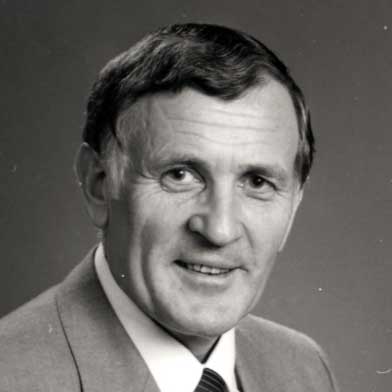Select Committees on Air Pollution and Water Pollution
The law and administration of divorce and related matters and the clauses of the Family Law Bill 1974
Then the stock market crashed. In its wake, the Senate appointed a select committee in March 1970 to examine the dealings of the securities industry and the operations of Australia’s six independent state stock exchanges.
The committee’s unanimous report was described by the Melbourne Age as ‘probably the most explosive document produced by either House of Parliament since Federation’. Highly critical of the stock exchanges’ failure to self-regulate during the boom, it exposed rampant misconduct and insider trading activities.
The committee recommended that separate regulatory laws in each state be replaced with a uniform national legislative scheme overseen by an industry watchdog, increasing transparency and public accountability. In 1979, after much negotiation, the government established a National Companies and Securities Commission along with standardised regulatory measures.
Eight years later, the committee’s vision of a national securities market was fulfilled when the state exchanges amalgamated to form the Australian Stock Exchange (ASX).
Peter Rae, 1986, Tasmanian Archive and Heritage Office, PH30/1/8310
Dedicated committee member Senator Peter Rae replaced Sir Magnus Cormack as chair in August 1971. A lawyer and farmer as well as a backbencher, Rae had not been eager to join the committee which soon came to dominate his whole life—‘I had a hell of a lot of other business … I was telephoned at home and asked to go on the committee. I said no six times and then reluctantly said yes’.
Fifteen years after handing down his sensational report, Rae described the committee as ‘outstanding’, saying it gave ‘an impetus to the whole of the movement towards the development of the Senate committee system’.
Peter Rae, 1986, Tasmanian Archive and Heritage Office, PH30/1/8310
Courier-Mail (Brisbane, Qld.), 3 April 1971, p. 2
Wallace Brown, in his coverage of the inquiry in his column 'This Week in Canberra' wrote:
'For some time the Senate has been trying to emulate its United States counterpart as a public watchdog, through the development of special committees.
Its bark has been heard as the fondly-nurtured puppy grew.
Now its mature bite has been felt.
The scene: Crowded committee room L17 in Parliament House lined with portraits of Senate presidents and filled with red covered furniture, cigarette smoke, journalists - and the on-stage stars.
The occasion: The Senate Committee on securities and exchange, investigating, probing, cross-examining, even grilling some of Australia’s top stockbrokers, company directors, businessmen, over the three big financial issues of the moment - the Minsec aftermath, the Antimony Nickel cornering on the Sydney stockmarket and the Leopold Nickel affair ...
Whatever it finally reveals in its report, the fact remains that a Senate committee has begun to look as important as its elder United States brother.
If committees become televised, as is mooted, they will over shadow the Senate itself.'
Courier-Mail (Brisbane, Qld.), 3 April 1971, p. 2
Find Out More
|
Kenneth Shaw Wriedt, committee member 1970-75, Interview with Dr Peter Hay, 1987-88
National Library of Australia, ORAL TRC 4900/68, session 4, 00:00:08-00:03:25. |
|
|
Magnus Cormack, chair 1970-71, Interview with Tony Hannan, 1987
National Library of Australia, TRC 4900/39, session 11, 00:06:37-00:10:26. |
|
|
Peter Rae, Extract from keynote address, 'The revolutionary proposals of 1970', Conference to mark the 20th anniversary of Senate legislative and general purpose standing committees and Senate estimates committees, 3 October 1990
Read by Eric Aichinger. |
